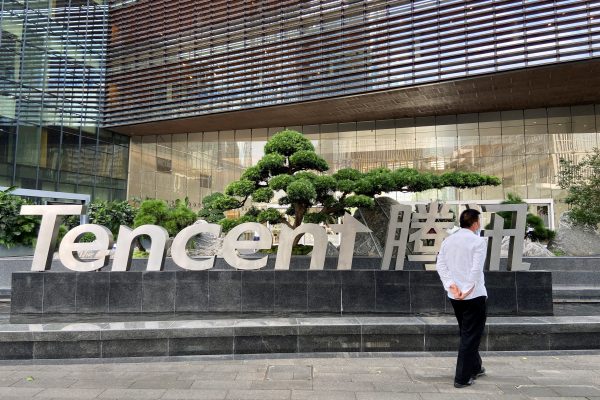WeChat and its Chinese version, Weixin, are ‘two systems’ that operate on ‘one app’. WeChat is designed for users outside mainland China who register with a non-Chinese mobile phone, is governed by local laws and is operated by Singapore-based WeChat International.
Weixin is for users who register with a Chinese mobile phone, is governed by Chinese law and is operated by Shenzen-based Tencent. In principle, individual WeChat accounts are not subject to China’s content censorship and WeChat’s user data is stored in Singapore.
Yet WeChat has been portrayed as a threat to national security in Australia and elsewhere. Former US president Donald Trump pointed to national security concerns when he sought to ban WeChat and TikTok in 2020. But a US court promptly stayed the ban after a WeChat users group brought a successful lawsuit against it. The court found that there was ‘scant… evidence’ for such a ban — US President Joe Biden officially withdrew Trump’s executive orders in 2021.
In Australia, the opposition Liberal Party’s Senator James Paterson, who chairs the Senate Select Committee on Foreign Interference through Social Media, has been talking up the need for WeChat to be banned there.
Australia is home to nearly 550,000 first-generation migrants from China. Almost all of them use WeChat or Weixin to stay connected with family, friends, business associates and other networks in China and to communicate with fellow Chinese Australians. Weixin content is subject to scrutiny by Tencent and censorship by Chinese authorities. Weixin users in Australia also risk having their content or accounts removed if they are critical of the Chinese government.
But WeChat and Weixin have proven to be effective ways of providing civic education to new migrants outside China. During the COVID-19 pandemic, Mandarin-speaking migrants throughout Australia used WeChat to coordinate support for fellow Chinese-Australians. This included delivering necessities to those confined to their homes, sending messages of moral support and reinforcing the importance of voluntary self-quarantine.
WeChat is often labelled a ‘narrative machine’ — an organ of ‘propaganda and disinformation’ for the Chinese Communist Party. Our recent global study of WeChat use suggests that this claim has been grossly exaggerated, instead finding ample evidence of WeChat’s use in social activism, citizen engagement, civic action, identity expression and transnational business entrepreneurship within the global Chinese diaspora.
In Australia, apart from raising funds for bushfire victims and other disaster relief initiatives, Chinese-Australian community members have also used WeChat to make connections and develop solidarity on social issues with marginalised communities and mainstream society.
In June 2020, Black Lives Matter supporters in Perth were discouraged from protesting in public places by public health authorities due to the risk of spreading COVID-19. But they still wished to go ahead with planned rallies. The organisers were moved to tears when a Perth-based Chinese community heard of their dilemma and used WeChat to organise the donation of 11,000 masks.
WeChat also plays a pedagogic role in educating new citizens about Australia’s political system, democratic values and electoral processes. WeChat assists individuals to become more engaged in Australian politics, better informed about their voting options and contributors to the nation’s democratic processes.
Online surveys, sustained digital ethnographic observation in 45 Australia-based WeChat groups and in-depth one-on-one interviews with 15 active WeChat users over three years reveal a more nuanced picture about how WeChat is used in Australia. Politically-oriented WeChat groups are among the most politically engaged Mandarin-speaking individuals.
Many new Chinese migrants join these politically-oriented WeChat groups to find out how the voting system works, learn about the major political parties and participate in political debates during election campaigns. This is an important first step towards becoming active and politically engaged citizens.
Chinese-language media are used for both democratic and anti-democratic purposes. While WeChat can be used to spread misinformation, it can also be used to fact-check and expose fake news. Just as WeChat is capable and guilty of facilitating polarising views and propagating extreme opinions, it can also mobilise civic action and encourage political participation in Australian politics. In these respects, it is just like any social media platform.
New leaders are also emerging in the centre-left Labor Party and conservative Liberal–National Coalition camps to play active roles in debating and interpreting the policy statements of politicians, taking it upon themselves to repost news stories, op-eds and tweets from English-language media outlets, sometimes with a Chinese summary of the content.
It would be ironic if the ban, having been proposed in the name of defending democracy, ended up undemocratically depriving citizens of their right to freedom of expression, opinion and language.
The Australian government can consider requesting WeChat to allow its international users to register individual WeChat subscription accounts and ensure such accounts are not subject to Chinese censorship. Currently, only Weixin account holders and Chinese citizens can register individual accounts.
Wanning Sun is Professor of Media and Communication Studies in the Faculty of Arts and Social Science, University of Technology Sydney.
Haiqing Yu is Professor and ARC Future Fellow in the School of Media and Communication, College of Design and Social Context, RMIT University.

